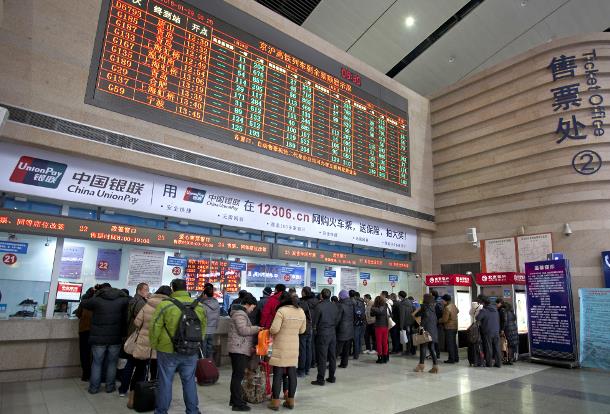ChinaTravelNews, Ritesh Gupta - Running an astute digital platform in China has its own intricacies, and foreign hotel brands are digging deep to go beyond the mundane routine of working on global templates, “write-once, use everywhere” technical capabilities or optimizing content for SEO.
All of this now sounds “clichéd”, especially in the era of data-driven personalisation.
In fact, when foreign brands are talking about that “special touch” for guests from China across their properties (e.g. trained staff that can understand Chinese, hotels offering preferred food choices, accepting Chinese credit cards and digital wallets etc.), is it reflecting in the digital assets owned by non-Chinese hotel companies? Here we explore how such global assets are being powered by a data-driven focus to deliver a localized experience.
Websites evolving into digital platforms
The face of travel ecommerce websites is evolving.
Rather than just being an avenue for providing information/ content and taking transactions, airlines and hotels are increasingly looking at enabling users to set up their respective personal profiles, store their details such as payment information etc. to offer an enriched travel experience.
The intention is to provide a more complete sense of the visitor experience, says London, UK-based Nayan Peshkar, VP - Revenue Management and E-Commerce, Europe, Millennium Hotels and Resorts.
For their part, Millennium Hotels and Resorts (MHR) recently launched a dynamic new digital platform, millenniumhotels.com. The new version has easy to assimilate design, content and functionalities. The fact that the team has chosen to offer seamless ways to explore popular destination content via mapping, images etc. makes the planning aspect simpler.

Such platforms are about flexibility, letting users explore what they would like and book what they want.
MHR has focused on this aspect. “We have found that giving travellers the means to craft their own itineraries or tie up with third party tour operators works as a compelling reason to book. (This works well with) other on-the-ground features such as Mandarin-fluent staff and China-focused menus and TV options. The platform gives us the means to communicate these attributes effectively without making them dominant. The site is designed to be globally relevant, locally focused,” shared Peshkar.
The backbone of MRH’s digital platform is a custom-built customer relationship management (CRM) system. It connects the databases of each hotel for the first time, enabling greater customer engagement which in turn allows targeted communications, tailored to each guest. “As well as providing relevant content, based on our own CRM data or and the customer’s browser behaviour, we deliver product feeds such as tickets to local attractions, shows, events and recreation activities nearby each of our hotels.”
Referring to the sort of homework that was done for China, Peshkar said, “You need to take a holistic approach to China.”
He further explained: “Language translation alone is insufficient to penetrate the audience. We analysed Chinese websites to understand how the content and website forms are presented and we combined this with our own proprietary findings from user-experience. We also understood from our research the importance of a website that caters to slower Internet speeds. This led us to develop a website that is image-rich, but optimised for speed of loading, which works not just for China, but for a global audience, too.”
China is known for its prowess in the arena of mobile commerce, and Peshkar did acknowledge that mobile-friendliness is among the most important quality that any marketing/ sales platform needs to develop. “Flexibility and scalability are vital - the platform has to be robust and able to move with the tides of public taste, changes in which are more decisive than before. At the same time amidst all this change you have to retain your personality, your identity. It’s a delicate balance,” he said. Peshkar also singled out the understanding and acceptance of China-related payment methods to be an important influence on buying behaviour.
Personalised data-led content
A major focus today of e-commerce initiatives is on areas such as finalizing a content delivery network provider in China, attaining white-listing for a website via a licence that states that it doesn’t contravene Chinese laws, and even testing a website specially at the local level. Also, considering the penetration of Baidu, Alibaba and Tencent or the so-called BAT ecosystem, brands are even trying to combat the “walled garden”, which means how to get data out of each ecosystem.
If we delve deeper into the issue of how to make each digital interaction meaningful when one lands on a foreign hotel website, it is vital to know whether content is being served on dynamic basis or not in China. Also, is tracking, building online profiles and eventually online segmentation any different from other markets in China?
Personalised data-led content is expected by online visitors, but it is important to use that data judiciously, said Peshkar.
It comes down to tools a company uses, says Chetan Patel, VP, Strategic Marketing & E-Commerce, Onyx Hospitality Group.
He says if a hotel company uses sophisticated CMS (content management system) and CRM systems it is not necessarily different from overall implementation point of view. “However, devil is in the details. The content delivery needs to be customised/ personalised by the language and user profile. If you apply the same rules to the delivery as everywhere else, it may not work. So, you need the understanding of the customer behaviour from the Chinese market in order to customise the experience for them. For example, we may have content that focuses on experience elsewhere but we may also need to focus on price point for China market,” explained Patel.
As I probed further about the significance of having sophisticated CMS and CRM systems in place, Patel said, “Top of the line enterprise level CMS systems can pick behavioural clues from referring site of a visitor, browsing history, past visit, loyalty profile, CRM profile, social media profile or a combination of all these. A more targeted content can then be presented at the outset or after a certain number of pages. CRM system will have information on RFM value or recency, frequency and monetary value along with guest preferences and past behaviour. You could also go a step further and use loyalty/ CRM profile to customise the pricing.”
“CMS system that is capable of linking to CRM system leverage the available information to custom deliver content,” added Patel. “Local input is required in terms of what offer, package, price point, marketing message would get the best response/ conversion from the target audience. We may need to tweak the algorithms in CMS to be able to deliver such content to the audience.”
CX and conversion
The team at Millennium analysed the customer experience (CX) more than ever done before, qualitative and quantitative, stripping it down to see the moving parts clearly, identifying what really attracted guests to properties and why they moved from look to book.

So what sort of personalisation is MHR offering on the new platform – for instance, if I visit 3-4 times, how would the site try to get me closer to taking a decision?
“If a user is on a third or a fourth visit to the site, we’ll recognise that they are closer to booking, and we’ll use their past browsing behaviour to offer persuasive, supplemental information that is relevant to the planned time of their stay,” said Peshkar.




